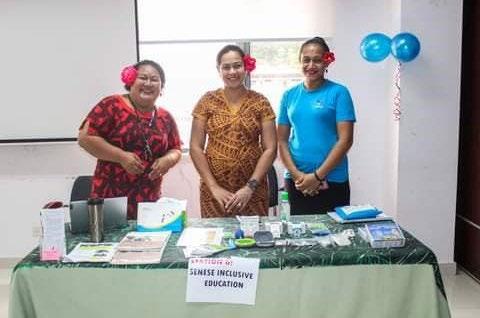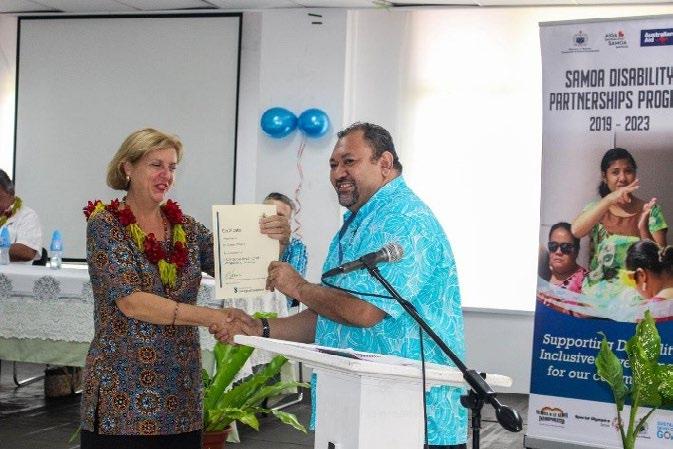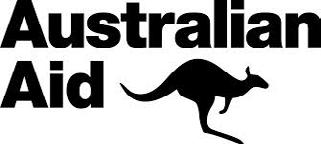
3 minute read
Hearing care for all: World Hearing Week in Samoa
On 3 March 2021, the Royal Australasian College of Surgeons (RACS) Global Health department celebrated World Hearing Day, established by the World Health Organization (WHO) to raise awareness of how to prevent deafness and hearing loss and promote ear and hearing care across the world.
The RACS Global Health Samoa Hearing Program supports the Samoan Government’s strategy on disability and inclusion and the broader Australian Aid-funded Samoan Disability Partnership Program. This program aims to support the Samoan Government’s implementation of disability-inclusive policies, plans and programs that assist in decreasing barriers for people with disabilities to access services. Pacific Island countries have among the highest rates of ear disease and hearing loss in the world.1 In Samoa, approximately 40,000 children will reach school age in the next decade and, based on current service estimates, fewer than 20 per cent of these children will receive a routine hearing test. Fewer than five per cent of those with a hearing impairment will receive any hearing intervention or support. The impacts of unaddressed hearing loss or impairment on the inclusion and productive potential of Samoa’s population are profound. Yet screening and hearing interventions, such as hearing aids, are a relatively cost-effective intervention to implement at scale.
Advertisement

The SENSE team at World Hearing Day events providing information and advice on hearing devices and educational support.
Ministry of Women, Social and Community Development.
RACS Global Health is responding to this critical issue under the direction of Dr Sione Pifeleti, with the Tupua Tamasese Meaole (TTM) Hospital ear nose and throat (ENT) team. The Samoa Hearing Program supports the further development of a cohesive national hearing service across Samoa to help bridge the gap between mainstream and disability services. Recent activities include the delivery of a mobile hearing trailer, and success in securing accreditation through the Samoan Qualifying Authority for the WHO Primary Ear Health training course. This course will be offered to healthcare professionals and community service providers later in the year.
For World Hearing Day, Global Health supported events such as free hearing screening clinics, talks on ear and hearing health, and promotion of ear and hearing health training for health workers in Samoa. The activities took place across a full week, with official presentations by the Minister for Health and outreach visits to rural areas such as Savai’i and Vaovai.
RACS Global Health, with the support of the Department of Foreign Affairs and Trade (DFAT) Humanitarian Corridor, has been able to deliver 32 boxes of equipment to Samoa. This included a large shipment of hearing aids and batteries, audiometers and tympanometers, as well as training materials and instruments to facilitate the delivery of the WHO Primary Ear and Hearing Care Training Program. The timely arrival of this equipment aided RACS’ local partners to advocate for and raise awareness of ear and hearing health throughout World Hearing Day celebrations.
Government partners include the Ministry of Health and the Ministry of Women, Community and Social Development. Local civil society partners include SENSE, a special education organisation supporting the inclusion of those with hearing loss and impairment, to participate in education and the community, while providing other vital support to hearing impaired individuals and their families. RACS Global Health also works with local Disabled People’s Organisations, Nuanua O Le Alofa (NOLA), the umbrella organisation for disability advocacy in Samoa, and SASLI, the Samoa Association of Sign Language Interpreters, who work closely with the hearing impaired community.

Australian High Commissioner Sara Moriarty presenting Dr Sione with a certificate for completing the RACS Global Health Child Safeguarding training.
Ministry of Women, Social and Community Development
Hearing loss: facts and figures
• 400 million people, including 34 million children, are estimated to be living with hearing loss globally, and approximately 80 per cent of people with hearing loss are living in developing countries.
• Major causes of hearing loss include congenital or early-onset childhood hearing loss, chronic middle ear infections, noise-induced hearing loss and age-related hearing loss.
• Children with hearing loss and deafness in developing countries often experience greater barriers in access to education, impacting their ability to participate when navigating future employment and social contexts.
• WHO estimates that unaddressed hearing loss costs the global economy US$980 billion annually due to health sector costs (excluding the cost of hearing devices), costs of educational support, loss of productivity and societal costs.
REFERENCES
1. Kaspar A, Pifeleti S, Driscoll C. The role of health promotion in the development of ear and hearing health services in the Pacific Islands: A literature review. SAGE Open Med. 2021 Feb 10; 9:2050312121993287. doi: 10.1177/2050312121993287. PMID: 33623701; PMCID: PMC7878995. 2. Samoa Bureau of Statistics, Ministry of Women, Community and Social Development, Pacific Community and UNICEF Pacific, 2018 Samoa Disability Report: An analysis of 2016 Census of Population and Housing. UNICEF, Suva, 2018.

Main image: Dr Sione Pifeleti examines a patient. Photo credit: Ministry of Women, Social and Community Development






